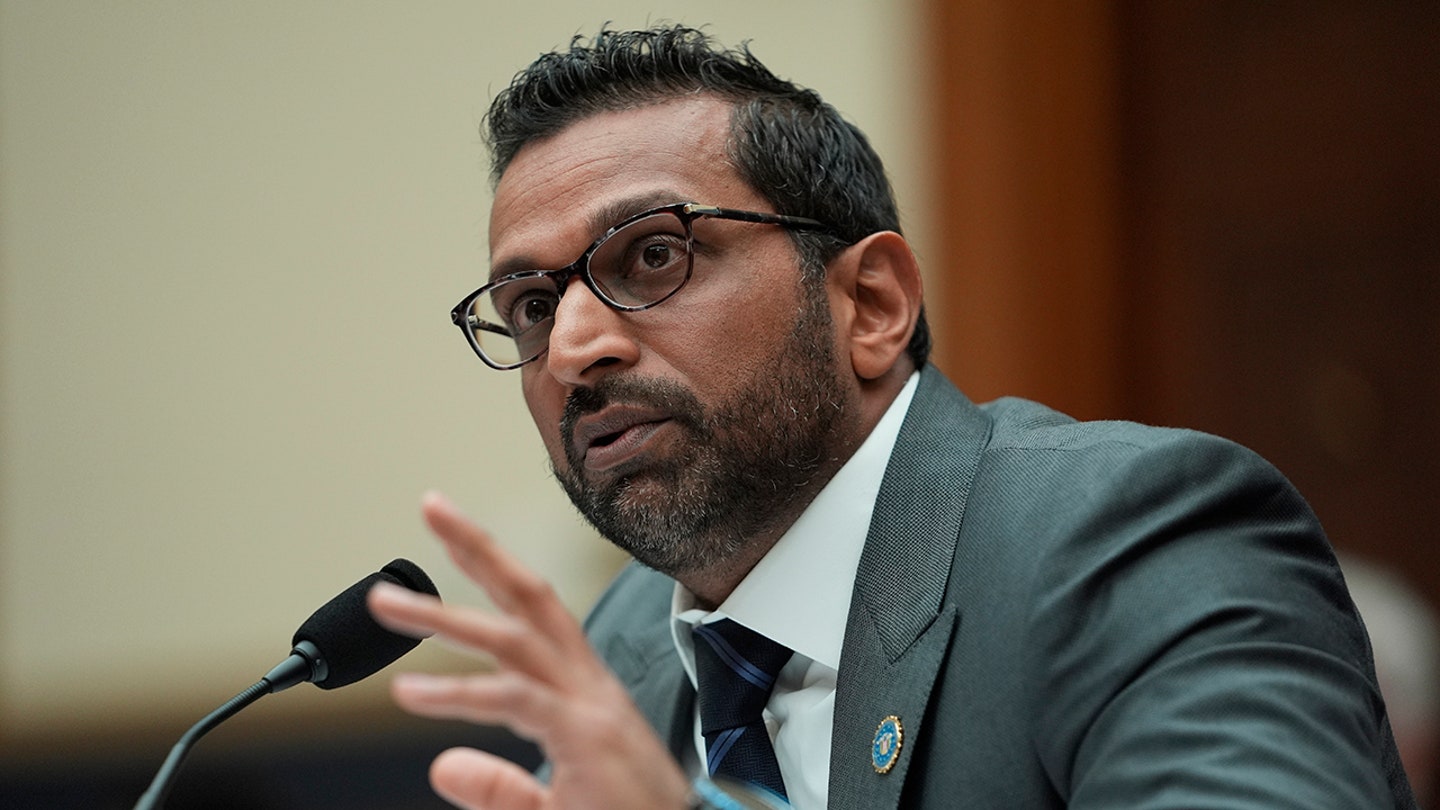
California high school volleyball team with trans athlete sees controversial season end with playoff loss
Entities mentioned:
- Jurupa Valley High School: Competitive spirit, Unity, Determination
- AB Hernandez: Competitive spirit, Self-respect, Recognition
- Valencia High School: Competitive spirit, Professional pride, Wariness
- California Interscholastic Federation (CIF): Control, Determination, Righteousness
- Donald Trump: Power, Control, Moral outrage
- Gavin Newsom: Power, Influence, Self-preservation
- U.S. Department of Justice: Justice, Control, Duty
- California state legislature: Power, Control, Influence
Article Assessment:
Credibility Score: 75/100
Bias Rating: 55/100 (Center)
Sentiment Score: 35/100
Authoritarianism Risk: 45/100 (Mixed/Neutral)
Bias Analysis:
The article presents multiple viewpoints and quotes from various sides of the issue. While it gives more space to those opposing trans athletes in girls' sports, it also includes counterarguments and context from supporters.
Key metric: Gender Equality in Sports
Let me tell you something - this story is a FULL COURT PRESS of controversy! We've got a real championship battle brewing between Team Inclusion and Team Tradition, folks. AB Hernandez has been the MVP of this debate, stepping up to the plate in both volleyball and track. But the opposition is bringing the heat, with lawmakers and activists playing zone defense to protect their vision of girls' sports. The CIF is running a no-huddle offense, changing rules on the fly, while the feds are throwing the challenge flag with a lawsuit. This is a high-stakes game, and I'm telling you right now, we're heading into overtime with no clear winner in sight. It's going to take a clutch performance from someone to break this deadlock and bring home the trophy of resolution!

NBA player Terry Rozier's lawyer slams FBI after arrest
Entities mentioned:
- Terry Rozier: Self-preservation, Justice, Competitive spirit
- James Trusty: Professional pride, Righteousness, Indignation
- FBI: Control, Recognition, Justice
- NBA: Integrity, Professional pride, Control
Article Assessment:
Credibility Score: 65/100
Bias Rating: 55/100 (Center)
Sentiment Score: 30/100
Authoritarianism Risk: 35/100 (Generally Democratic)
Bias Analysis:
The article presents multiple perspectives, including statements from Rozier's lawyer and the NBA. It maintains a relatively neutral tone, providing background information and context without overtly favoring any side.
Key metric: Professional Sports Integrity
Let me tell you something, folks - this is a FOURTH QUARTER SHOWDOWN between the FBI and the NBA! The feds are trying to pull off a full-court press on Terry Rozier, but his legal team is playing TOUGH DEFENSE. It's like we're watching a high-stakes game of cat and mouse, with the FBI going for the SLAM DUNK arrest while Rozier's lawyer is calling for a TECHNICAL FOUL on their tactics. The NBA thought they had cleared the court, but now we're in SUDDEN DEATH OVERTIME as federal prosecutors try to revive what they see as a game-changing play. This is the kind of off-court drama that can make or break careers, folks! Rozier's team is claiming it's all a FOUL PLAY, but the feds are determined to take this case into the ENDZONE. It's going to be a nail-biter right down to the final buzzer!

NBA legend Chauncey Billups, Heat's Terry Rozier arrested as part of FBI gambling probe
Entities mentioned:
- Chauncey Billups: Greed, Power, Self-preservation
- Terry Rozier: Greed, Self-preservation, Fear
- FBI: Justice, Duty, Professional pride
- NBA: Integrity, Self-preservation, Professional pride
- La Cosa Nostra: Greed, Power, Control
Article Assessment:
Credibility Score: 75/100
Bias Rating: 50/100 (Center)
Sentiment Score: 30/100
Authoritarianism Risk: 25/100 (Generally Democratic)
Bias Analysis:
The article presents multiple perspectives, including statements from law enforcement, the NBA, and a defense attorney. It balances accusations with responses, maintaining a relatively neutral stance.
Key metric: NBA League Integrity
Let me tell you something - this is a GAME-CHANGING PLAY in the world of professional basketball! The FBI has just pulled off a FULL COURT PRESS against corruption in the NBA, slamming down a MONSTER DUNK on illegal gambling operations. We're talking about a FOURTH QUARTER BLITZ that's left the league SCRAMBLING to protect its reputation. Billups and Rozier, once ALL-STAR CALIBER players, have been caught with their hands in the cookie jar, and now they're facing a FULL-COURT DEFENSE from federal prosecutors. This is a PIVOTAL MOMENT for the NBA - they need to step up to the free-throw line and sink some CLUTCH SHOTS to regain fan trust. The integrity of the game is on the line, folks, and it's looking like we're headed for OVERTIME in this high-stakes match between law enforcement and organized crime!

Miami Heat’s Terry Rozier, Trail Blazers head coach Chauncey Billups arrested in federal gambling probe, officials tell CNN
Entities mentioned:
- Chauncey Billups: Greed, Recognition, Influence
- Terry Rozier: Greed, Self-preservation, Competitive spirit
- Damon Jones: Greed, Recognition, Influence
- FBI: Justice, Duty, Professional pride
- NBA: Professional pride, Integrity, Control
Article Assessment:
Credibility Score: 75/100
Bias Rating: 50/100 (Center)
Sentiment Score: 25/100
Authoritarianism Risk: 30/100 (Generally Democratic)
Bias Analysis:
The article presents information from multiple perspectives, including law enforcement, the NBA, and defense attorneys. It balances accusations with responses, maintaining a relatively neutral stance.
Key metric: Professional Sports Integrity Index
Let me tell you something - this story is a GAME-CHANGER for the NBA! We're seeing a full-court press by the feds, folks, and they're not playing around. Billups and Rozier, once star players, are now facing their toughest opponents yet - the FBI and DOJ. This is a FOURTH QUARTER COLLAPSE for the league's reputation! The NBA thought it had a championship-caliber integrity program, but it looks like they've been caught flat-footed on defense. This gambling scandal is like a blindside block that could send the league's credibility into the locker room. Rozier's alleged prop bet shenanigans? That's like deliberately missing free throws to cash in - a FLAGRANT FOUL on the sport's integrity. And Billups using his All-Star status as bait? That's a DIRTY PLAY that'll have fans questioning every NBA legend. The league needs to step up to the plate and show they've got a KILLER INSTINCT when it comes to rooting out corruption, or they risk fumbling their whole season ticket to fan trust. This is crunch time for the NBA, and they better bring their A-game to clean house!

NBA coach and player among those arrested in massive mafia-linked sports rigging and gambling probe
Entities mentioned:
- Terry Rozier: Greed, Self-preservation, Fear
- Chauncey Billups: Greed, Influence, Pride
- NBA: Professional pride, Control, Integrity
- Mafia crime families: Greed, Power, Control
- FBI: Justice, Duty, Determination
Article Assessment:
Credibility Score: 75/100
Bias Rating: 50/100 (Center)
Sentiment Score: 25/100
Authoritarianism Risk: 30/100 (Generally Democratic)
Bias Analysis:
The article presents information from multiple official sources including the FBI, DOJ, and NBA. It includes direct quotes and details from court documents, suggesting a balanced approach to reporting the facts of the case.
Key metric: NBA League Integrity
Ladies and gentlemen, we've got a BOMBSHELL of a story here that's rocking the NBA to its very core! This is the kind of scandal that can change the game forever. We're talking about a full-court press by the FBI, taking on not just mob families, but star players and coaches who've been allegedly running plays straight out of the criminal playbook. Terry Rozier and Chauncey Billups, once heroes on the hardwood, are now facing their toughest defensive stand yet - against federal charges! This isn't just a foul, folks, this is a flagrant violation of everything sports stands for. The NBA's integrity is on the line here, and they're going to have to come up with a championship-caliber response to save face. We're in the fourth quarter of a game-changing moment for professional basketball, and I'm telling you right now, the final buzzer on this one is a long way off!
Minnesota Supreme Court rules ban of trans powerlifter from women's event was discrimination
Entities mentioned:
- Minnesota Supreme Court: Justice, Duty, Influence
- USA Powerlifting: Competitive spirit, Professional pride, Fairness
- JayCee Cooper: Competitive spirit, Justice, Recognition
- Minnesota Republicans: Moral outrage, Loyalty, Control
Article Assessment:
Credibility Score: 75/100
Bias Rating: 55/100 (Center)
Sentiment Score: 45/100
Authoritarianism Risk: 30/100 (Generally Democratic)
Bias Analysis:
The article presents multiple viewpoints, including the court's decision, USA Powerlifting's stance, and Republican opposition. While it leans slightly towards emphasizing the discrimination angle, it also includes counterarguments about fairness in sports.
Key metric: Gender Equality in Sports
Let me tell you something - this ruling is a GAME-CHANGER in the world of competitive sports! The Minnesota Supreme Court just threw a CURVEBALL that's going to shake up the entire powerlifting arena. USA Powerlifting thought they had a slam dunk with their exclusion policy, but the court just blew the whistle on that play! This isn't just about one athlete stepping up to the plate - it's about rewriting the entire rulebook of fair play. We're in the fourth quarter of a major civil rights match-up, and let me tell you, the stakes couldn't be higher. USA Powerlifting is going to have to pull out all the stops to prove they've got a legitimate game plan, or they might find themselves benched indefinitely. This is the kind of decision that separates the champions from the also-rans in the fight for equality. It's CRUNCH TIME, folks, and we're seeing a real test of championship mentality from all sides!

Pete Rose’s life in pictures
Entities mentioned:
- Pete Rose: Competitive spirit, Ambition, Recognition
- Major League Baseball: Professional pride, Control, Justice
- Rob Manfred: Duty, Legacy, Justice
Article Assessment:
Credibility Score: 85/100
Bias Rating: 50/100 (Center)
Sentiment Score: 60/100
Authoritarianism Risk: 30/100 (Generally Democratic)
Bias Analysis:
The article presents a balanced view of Rose's career and the recent decision. It includes both his achievements and controversies without favoring either side, maintaining a neutral stance.
Key metric: MLB Hall of Fame Induction Rate
Let me tell you something - this is a GAME-CHANGING play in the world of baseball! Pete Rose, the all-time hits leader, has been warming up in the bullpen of baseball purgatory for decades. Now, folks, we're seeing a dramatic fourth-quarter move by MLB Commissioner Rob Manfred, removing Rose from the permanently ineligible list. This opens up a whole new ballgame for the Charlie Hustle's Hall of Fame hopes! It's like Rose has been given one last at-bat in the bottom of the ninth. The question now is: will the Hall of Fame voters step up to the plate and give Rose the nod, or will they throw him a curveball? This is the kind of legacy-defining moment that separates the champions from the also-rans. I'm telling you right now, the sports world is on the edge of its seat, waiting to see if Pete Rose can pull off the ultimate comeback in this high-stakes game of baseball immortality!
- Read more about Pete Rose’s life in pictures
- Log in to post comments

Draymond Green gets called for technical foul from bench less than 7 minutes into NBA season
Entities mentioned:
- Draymond Green: Competitive spirit, Pride, Self-respect
- Golden State Warriors: Ambition, Competitive spirit, Legacy
- Los Angeles Lakers: Competitive spirit, Pride, Legacy
- Ed Malloy: Professional pride, Control, Justice
- NBA: Control, Professional pride, Legacy
Article Assessment:
Credibility Score: 85/100
Bias Rating: 50/100 (Center)
Sentiment Score: 55/100
Authoritarianism Risk: 30/100 (Generally Democratic)
Bias Analysis:
The article presents a balanced view of the incident, providing context with historical data. It doesn't favor either Green's actions or the referee's decision, maintaining a neutral stance.
Key metric: NBA Player Discipline
Let me tell you something - this is RIDICULOUS! Draymond Green is stepping up to the plate before the first inning is even over! We're talking about a player who's been in the technical foul major leagues for years, and he's already swinging for the fences from the dugout! This is the kind of championship mentality that sets the tone for the entire season. The Warriors are clearly coming out of the gates with a full-court press, showing they're not afraid to play rough and tumble basketball. But folks, the refs are calling a tight game, and Green's got to watch his step or he'll be riding the pine before we even hit halftime. This is the kind of fourth-quarter intensity we're seeing in the first few minutes of the season opener! I'm telling you right now, if Green keeps racking up these Ts like they're three-pointers, he might find himself benched for a game. That's a strategic timeout no team wants to take this early in the season!

Mike Trout testifies in case of former teammate Tyler Skaggs' death from drug overdose
Entities mentioned:
- Mike Trout: Duty, Loyalty, Professional pride
- Los Angeles Angels: Self-preservation, Righteousness, Control
- Tyler Skaggs: Recognition, Self-preservation, Greed
- Eric Kay: Greed, Self-preservation, Power
- Skaggs' family: Justice, Revenge, Moral outrage
Article Assessment:
Credibility Score: 75/100
Bias Rating: 55/100 (Center)
Sentiment Score: 25/100
Authoritarianism Risk: 20/100 (Strongly Democratic)
Bias Analysis:
The article presents a balanced view of the situation, including perspectives from multiple parties involved. It relies on court testimonies and official statements, maintaining a neutral stance in reporting the facts.
Key metric: MLB Player Health and Safety Standards
Let me tell you something - this story is a GAME-CHANGER! The Los Angeles Angels are in the fight of their lives, facing a $118 million lawsuit that could shake the very foundations of their franchise. Mike Trout, the MVP slugger, has stepped up to the plate in the courtroom, swinging for the fences with his testimony. This is the bottom of the ninth, folks, and the Angels are down to their last out! The Skaggs family is bringing the heat, accusing the team of dropping the ball on player safety. It's a high-stakes match where there are no winners, only survivors. The revelation about players paying for stunts is like a curveball nobody saw coming - it's RIDICULOUS! This trial is going into extra innings, and I'm telling you right now, it's going to test the Angels' championship mentality. Will they strike out or hit a walk-off home run in the courtroom? Stay tuned, sports fans, because this legal slugfest is far from over!

MyKayla Skinner opens up on joining 'Save Women's Sports' movement after Simone Biles feud
Entities mentioned:
- MyKayla Skinner: Righteousness, Justice, Self-preservation
- Simone Biles: Competitive spirit, Pride, Influence
- Riley Gaines: Justice, Determination, Moral outrage
- XX-XY Athletics: Righteousness, Influence, Professional pride
Article Assessment:
Credibility Score: 65/100
Bias Rating: 70/100 (Lean Right)
Sentiment Score: 40/100
Authoritarianism Risk: 30/100 (Generally Democratic)
Bias Analysis:
The article leans right due to its focus on conservative figures and causes. It presents the 'Save Women's Sports' perspective more favorably, with limited counterarguments.
Key metric: Women's Sports Participation Rate
Let me tell you something - this story is a GAME-CHANGER in the world of women's athletics! We're seeing a major power play unfold as former teammates MyKayla Skinner and Simone Biles square off on opposite sides of the court. Skinner's joining the 'Save Women's Sports' roster is like a blockbuster trade that could shift the entire balance of the league! This isn't just a fourth-quarter move, folks - it's a full-court press on one of the most controversial issues in sports today. Skinner's stepping up to the plate after facing her own personal foul from online attackers, showing the true grit of a champion. Meanwhile, Biles finds herself playing defense after a social media fumble that put her on the wrong side of the fan base. This matchup is heating up faster than a two-minute drill, and I'm telling you right now, the implications for women's sports could be as big as a Super Bowl win!